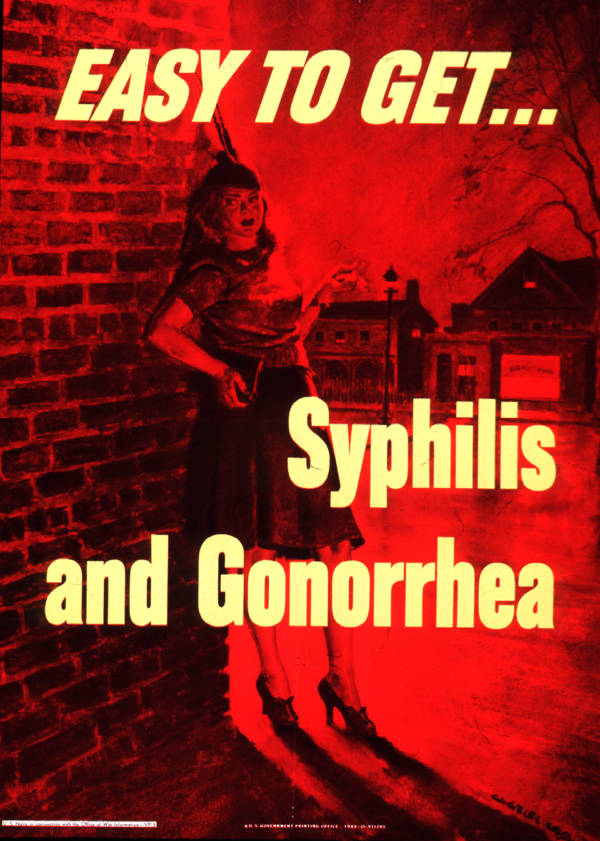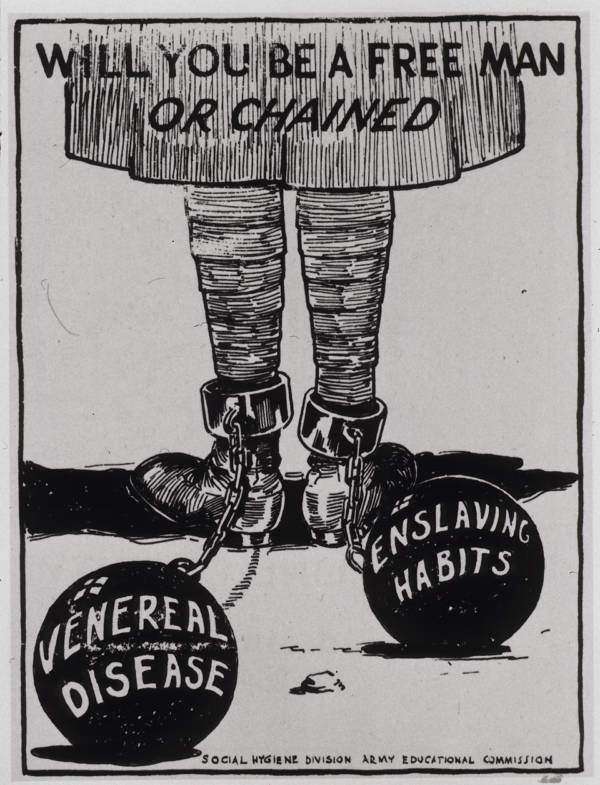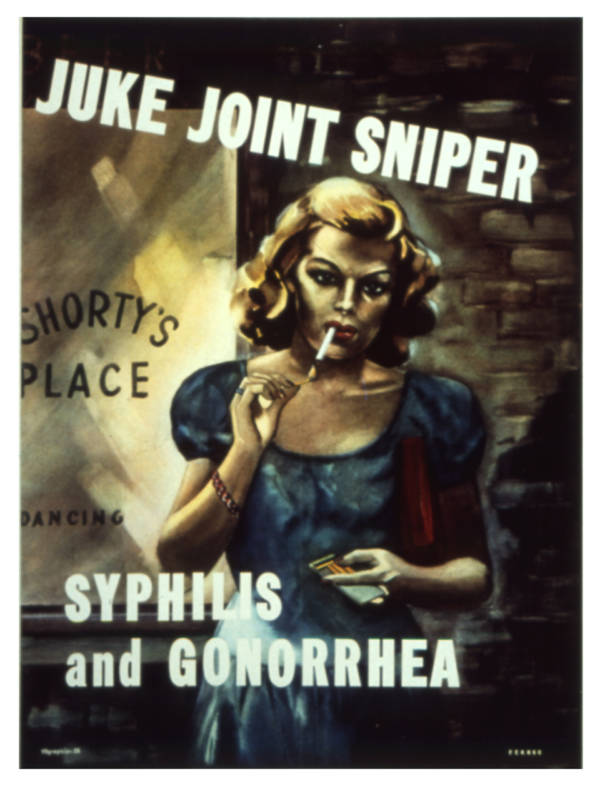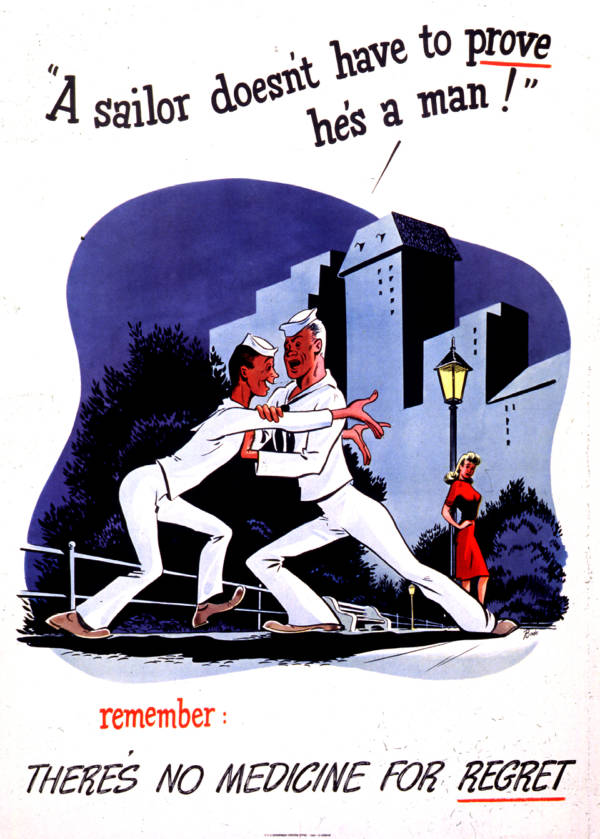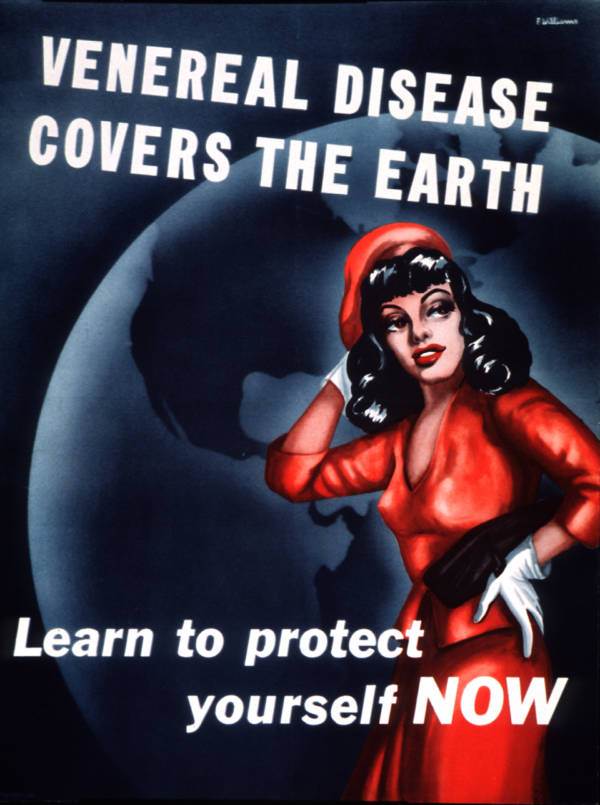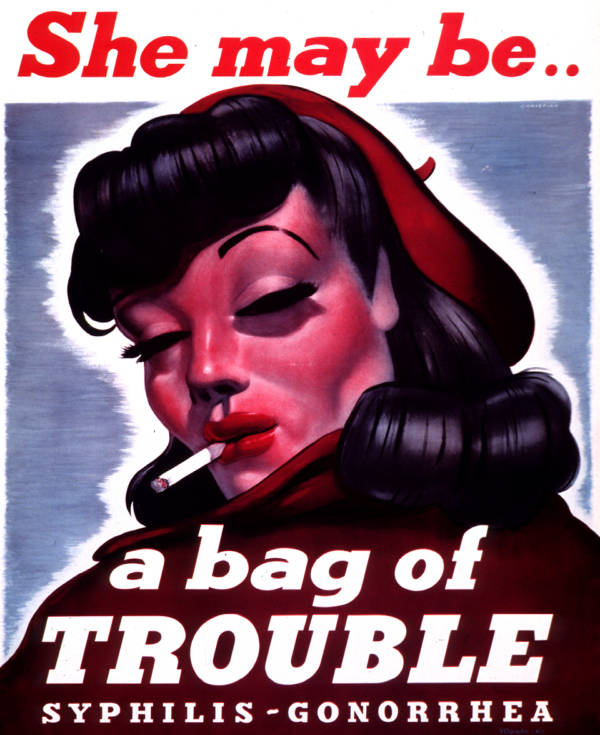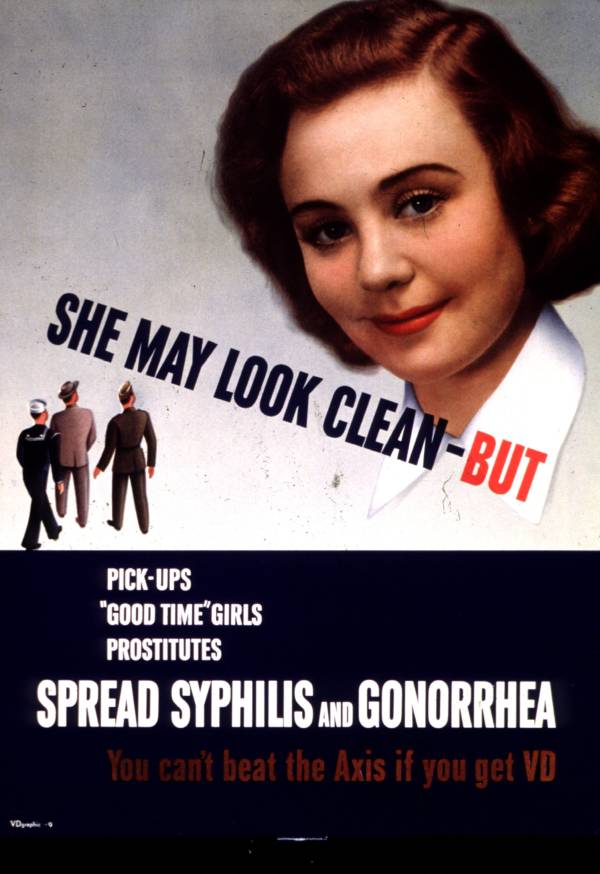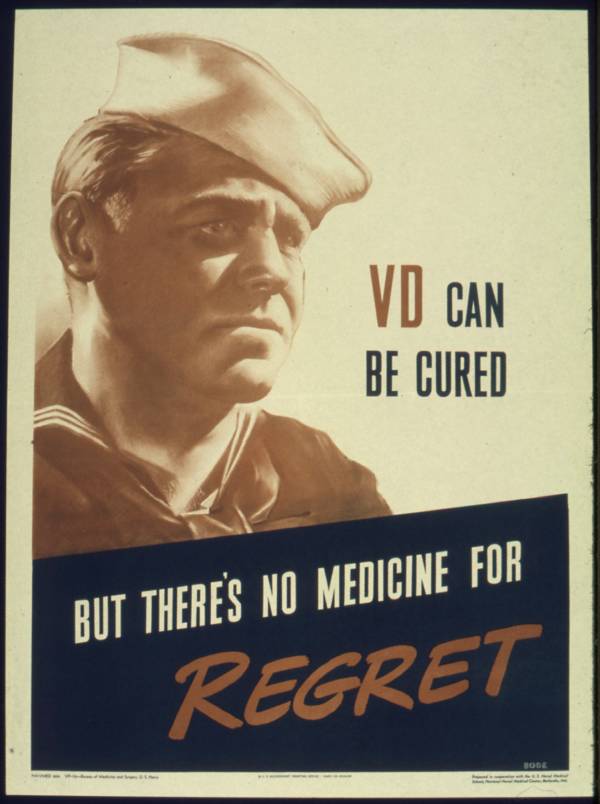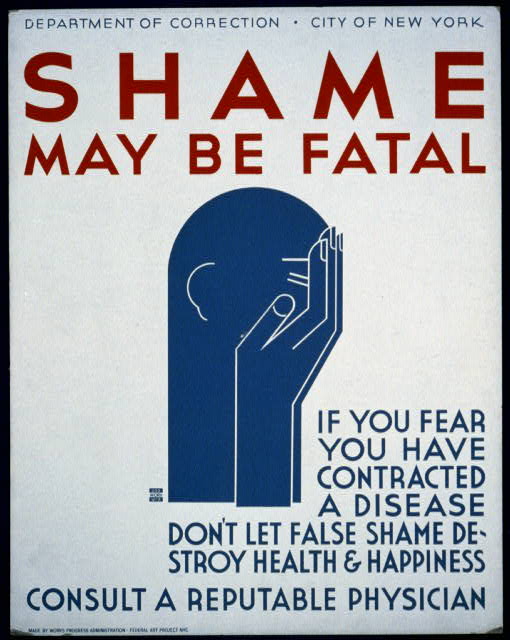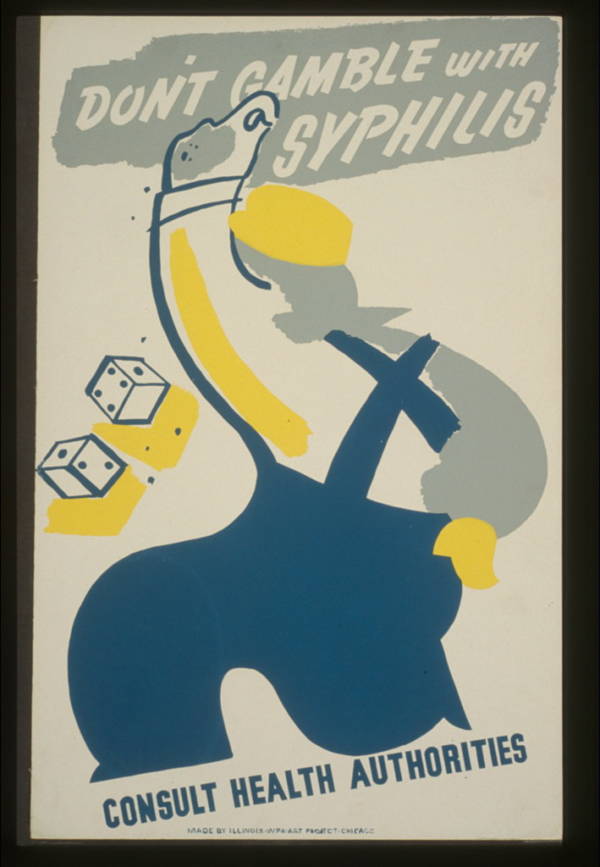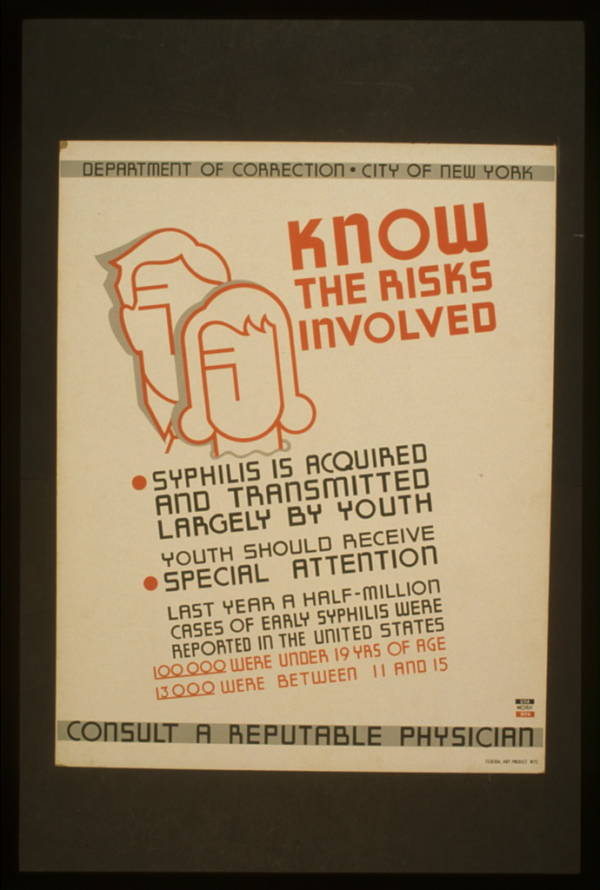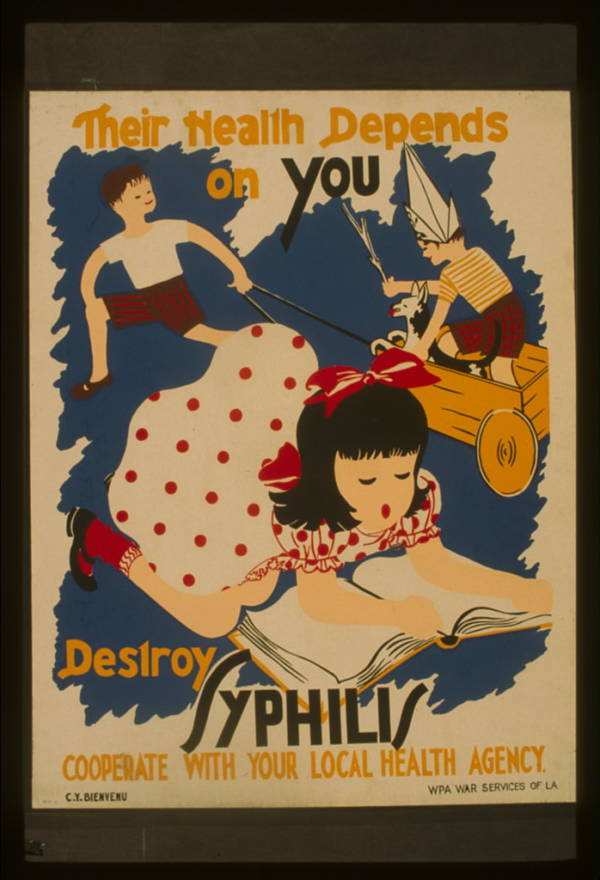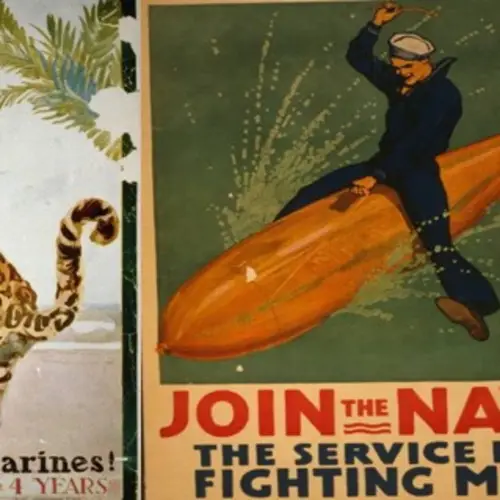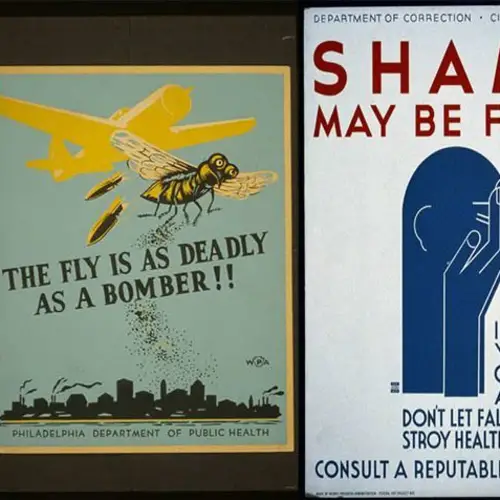During World War I, STDs put 18,000 servicemen in the hospital every single day. Indeed, as lonely servicemen sent overseas often filled their spare time with female companionship, the likes of syphilis and gonorrhea ran wild thanks to poor sexual hygiene and almost no sexual education.
In the years that followed, as the Great Depression wore on and especially as World War II approached, the U.S. government sought to address this problem, which is why we have the propagandistic STD warning posters above.
While the government's intentions -- keeping people healthy and informed -- may have been partly noble, the resulting posters are often nothing if not ignoble in their treatment of women. The posters depict women as the primary carriers and spreaders of STDs, and those sentiments led to greater scrutiny and demonization of young civilian women.
Regardless of their manifest sexism, the government displayed these posters in barracks, hospitals, railroad stations, and the like. Spreading the word far and wide was paramount, especially in the military, considering that almost 15 percent of draft-eligible men already had an STD before even entering the service.
This revelation sparked an STD public safety campaign across America, one that saw red-light districts shut down nationwide in the name of keeping America's young men in good working and fighting condition.
The U.S. government also created pamphlets to hand out to recruits, such as 1940's "Sex Hygiene And Venereal Disease." The WW2 US Medical Research Centre, a private venture for tracking World War II medical items, summarizes the pamphlet's message as such:
1. Manhood comes from healthy sex organs.
2. It is not necessary to have sexual intercourse in order to keep strong and well.
3. Disease may ruin the sex organs and deprive a man of his health and happiness.
4. You have a fine healthy body now. Keep it that way.
5. Venereal diseases come from sex relations or intimate contact with a diseased person. They are very serious. Gonorrhea and syphilis are two of the worst.
6. Most prostitutes have venereal disease.
7. Guard against venereal disease by staying away from “easy” women. Don’t gamble your health away.
8. If you do not have self-control then do not fail to take safety measures.
9. If you get diseased, report at once to your commanding officer. Time is most important.
10. Willpower and self-control help to keep a man’s body and mind healthy.
11. A healthy body and a healthy mind lead to happiness.
With some help from tools like these, after five years, the Army reduced that 18,000-per-day STD figure from World War I by 30-fold, down to just 606 men a day in 1944.
That's not to say that the military's sexual education campaign was solely responsible for the drop in STD numbers.
For one, important developments in medicine decreased the time it took to treat the major STDs at the time. Gonorrhea required a 30-day-long hospital stay in late 1943, while syphilis was a six-month ordeal. But by mid-1944, Army-supplied prophylactics reduced the average treatment for an STD to just five days.
In most cases, servicemen could even remain on duty while taking the drugs, in fit and fighting shape, just how the military wanted them.
Next, have a look at some ridiculous 20th century anti-marijuana propaganda posters. Then, see 21 Nazi propaganda posters that helped seduce ordinary people into hatred.
